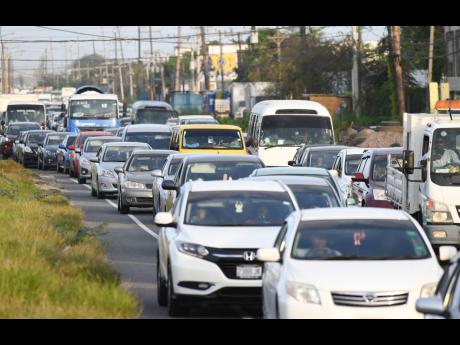Avoiding distractions when driving
Being distracted while driving is a sure recipe for disaster. Yet, it can be an easy task to accomplish on our busy roadways in Jamaica. However, as defensive drivers, we have to be focused and read the road continuously. Distractions from the driving task may be caused by non-vehicular factors such as excitement, sadness, stress or depression. “I do not take my eyes off the road,” says Mackeisha Johnson, an ADTC trained bus driver. “I read the road ahead, I try to be focused on my driving, though it is quite tempting to do otherwise,” she adds. According Johnson, she is cognisant of the fact that one simple mode of distraction could mean the difference between life and death.
We have to be patient in town or city traffic and try to pay attention on the road ahead while driving. While being focused, drivers need good judgement in stopping, starting and turning. Also, knowing the traffic rules, signs, and signals are of great help. Additionally, drivers must be aware that having distractors in the motor vehicle requires the driver’s attention.
Dr Wendel Abel, consultant psychiatrist, was of the view that excessive vehicular traffic can have an effect on drivers generally. It must be further noted that a professional driver in a motor vehicle, for six hours a day, has a greater potential of being involved in a collision than the average motoring public. Therefore, psychological and physiological factors can increase the potential for collisions. Here are a few psychological factors worthy of note for all motorists:
1. The aggressive nature of some persons may spill over into the driving task.
2. The driver having attitudes of impatience, self-righteousness and ego can impair his or her judgement.
3. The driver being bored after spending a full day behind the steering wheel.
4. The driver not being prepared for the lack of reaction or over-reaction from other motorists.
5. The effects of emotions after having dealt with work-related duty or the effects of emotions resulting from a personal situation.
The physiological factors include the following:
1. The consumption of drugs and alcohol can have a deteriorating effect upon the driver’s decision-making skills.
2. Fatigue can be as a result of a driver being on a rotating shift when the said driver’s biological clock is saying it is time to sleep or take a nap.
Norris Christian, a trained driver instructor, offers some reminders:
1. Rest before taking a long trip.
2. Get yourself in the proper frame of mind for driving; do not carry undue stress from home to road.
3. Be alert, stay focused and read the road from all angles.
4. Do not drive if you are hungry, angry or in any form of discomfort.
5. Remain calm amid the rigours of the road.
6. Never drink and drive; and make a conscious effort to drive safely.


